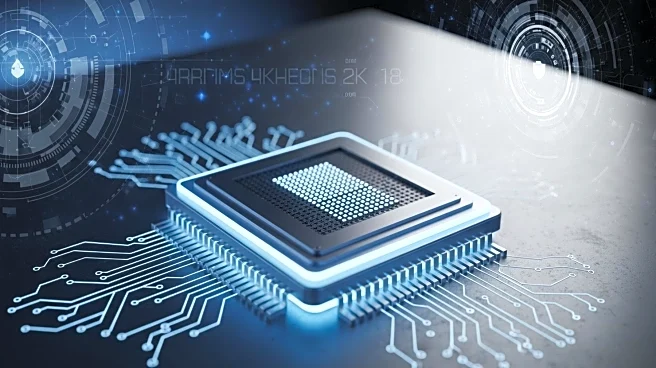What's Happening?
In August, the Trump administration acquired a roughly 10% stake in Intel, making it the largest single shareholder of the chipmaker. This move is part of a broader strategy to bolster national security amid rising competition with China, particularly in the field of artificial intelligence. The U.S. government has historically intervened in private companies during emergencies, such as the financial crisis and World War II, but this instance is unique as it is not prompted by an immediate crisis. The acquisition is seen as a way to support Intel, which has fallen behind competitors like TSMC and Samsung in the high-end chip manufacturing sector. The government will not have voting rights in Intel, but the company may still face political pressure.
Why It's Important?
The U.S. government's stake in Intel highlights the strategic importance of semiconductor manufacturing in maintaining national security and technological leadership. As the global race for AI dominance intensifies, ensuring a domestic supply of advanced chips is crucial to mitigate risks associated with foreign supply disruptions, such as potential conflicts involving Taiwan, where TSMC is based. This move could set a precedent for increased government involvement in private industries deemed critical to national interests. While it aims to secure the U.S.'s position in the tech sector, it also raises concerns about potential inefficiencies and favoritism that can arise from government intervention.
What's Next?
Intel may experience increased scrutiny and pressure to innovate and regain its leadership position in the semiconductor industry. The U.S. government might continue to explore similar interventions in other critical sectors to safeguard national security. Additionally, this move could prompt discussions on the balance between free-market principles and strategic government involvement in industries vital to national interests.










